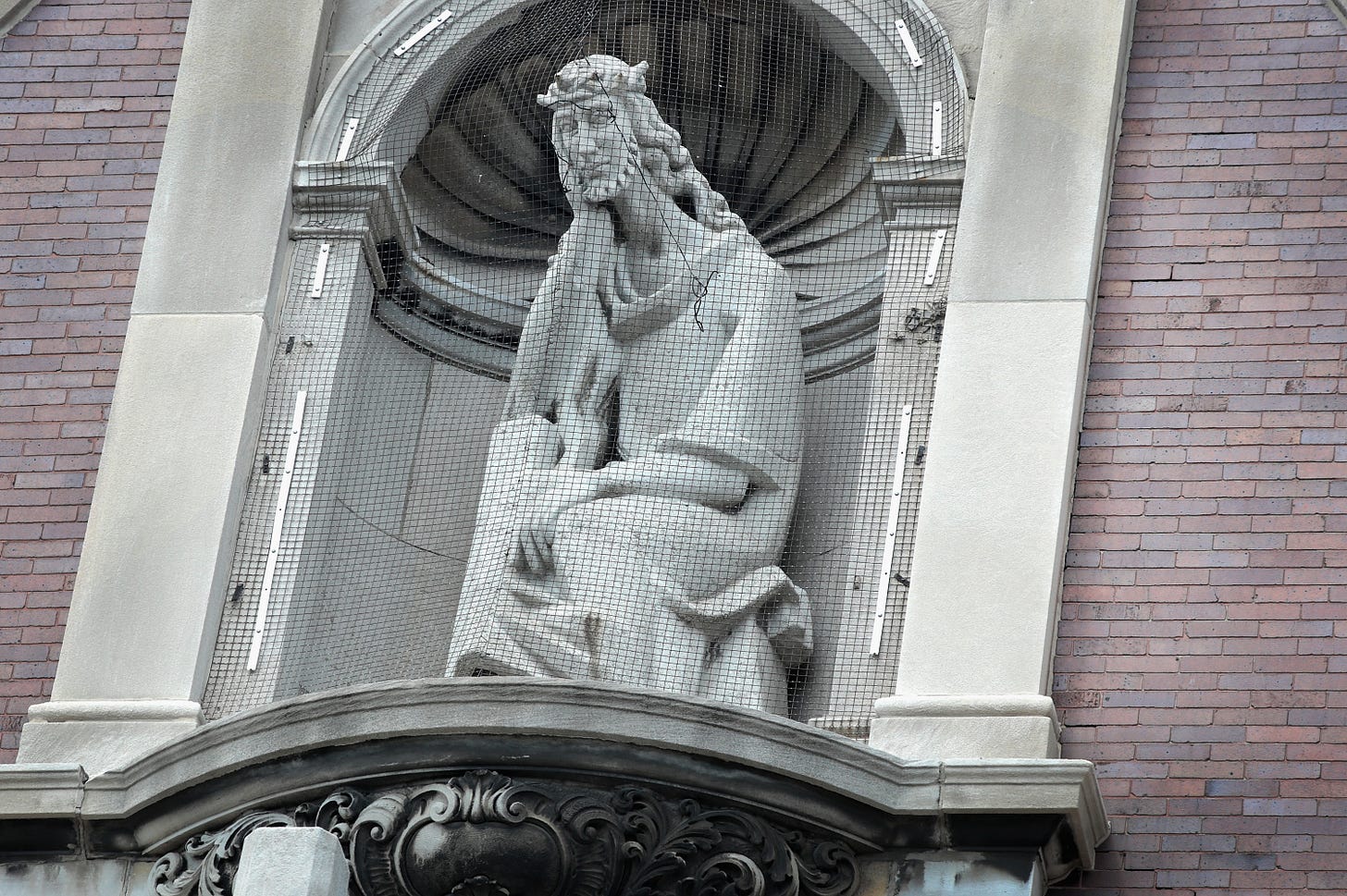Keeping Religion Out of Politics Is Better for Both

In 1979, Ayatollah Khomeini led the Iranian Revolution to depose the shah, Mohammad Reza Pahlavi. Never mind that Iran was in the midst of a great period of peace and prosperity: The Shah had modernized and Westernized the country’s economy and instituted secular reforms, such as allowing women to vote and religious minorities to run for public office. And that was not what the people wanted. Instead, they wanted a theocracy, and theocracy they got. But 40 years later, the country looks very different.
These days, Islamophobia is widespread: Videos of young men and women violently assaulting clerics are widely celebrated on social media. Never have Iranians been more atheistic and secular. As mosques are empty, underground churches for secret converts to Christianity are filling up. Opposition to the regime has translated into a revolt against Islam.
Iranians of all ages have been disgusted by the association of religion and government. They hate that the clergy and non-clergy Islamists are hypocrites who impose a way of life on them they don’t like only to enrich themselves. But not just that. Even economic and foreign policy grievances find their ways to arrive at Islam as the source of the problem—not an Islamic government, but Islam itself.
Mixing religion and politics has corrupted both religion and politics. There is a lesson here for Americans, especially evangelical Christians.
On a recent episode of The Remnant with Jonah Goldberg, Ben Howe appeared to discuss his new book, The Immoral Majority, in which he talks about the devolution of the evangelical moralism into transactionalism and finally into Trumpism. The hypocritical behavior of the religious right is not unlike that of the Islamist clergy in Iran. The backlash has been the same, as well.
When John Acton said, “power corrupts, and absolute power corrupts absolutely,” he was not talking about powerful men but those around them. And so it is with evangelical leaders. And because they are so often well known, they have corrupted the public view of Christianity, as well.
The New York Times had an opinion piece last week, titled, “Why People Hate Religion.” A good piece, but a better headline would have been “The Reason for the Decline of Christianity” as the piece doesn’t touch other religions. Declines in the practice of Judaism and Islam have been significantly slower among young people than the decline in practicing Christianity. A big part of the explanation is that Jews and Muslims do not have large “moral” political movements like Christians do and because they don’t use faith for electoral purposes to the extent that Christians do. Conversely, their clergies are not grossly political, either.
The United States has always been a more religious country than much of the rest of the developed world. Part of the reason is that the longstanding separation between religious institutions and the state—a practice longer than in any other country—has protected not just the state but also those religious institutions. Also, the religious institutions that became political were not, until recently, monolithic movements. The evangelical movement changed that. Now, the word “evangelical” is directly associated with Donald Trump and right-wing politics. For instance, Tony Perkins from Family Research Council—an evangelical lobbying organization—recently joined Fox News to opine against gun control. Franklin Graham has made political statements about issues from the Iraq war to gun control. And then there is Jerry Falwell Jr., who is not a pastor but is still perhaps the most influential evangelical leader in the U.S. Whatever one’s opinions on any political issue, it does bring up the question of why a religious leader’s opinion on such terribly earthly issues matters. The answer is it doesn’t, or at least it shouldn’t.
The clerics who are beaten up in Iran are not all necessarily associates of the regimes, but they are its symbols. Christianity in America, more and more, is becoming less a symbol of faith and more a symbol of right-wing politics, and thus, something to be resented by those who are not on the right side.
The United States of America is not the Islamic Republic of Iran, and Franklin Graham is not Ruhollah Khomeini, either. The case is not nearly severe. But there is a question to be asked here: What is a healthy relationship between faith and politics without making faith toxic and corrupted? Because, right now, it appears that that line has been crossed, and that isn’t just bad for politics but also especially bad for faith.
When the regime in Iran falls, and whatever comes next, it is a safe bet that the politics will be more secular than what it was before; whatever public policy gains that the regime has made will be gone overnight because faith itself has departed the hearts of the Iranian people. If the Christian right is not careful, not only the minimal gains it is making will be lost, but the churches will become quieter, too.

